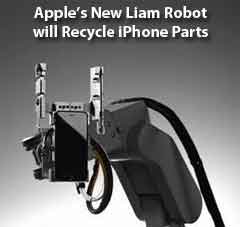UPS to Invest another $100 Million in Natural Gas Trucks
UPS announced last week it was investing $100 million in natural gas-based trucks and supporting infrastructure, saying it did not want to lose momentum on alternative fuels even though diesel prices have tanked, making the move less financially attractive.
The new program will fund 12 compressed natural gas fueling stations and add 380 CNG heavy duty trucks to the parcel delivery company's fleet. The announcement comes as a sharp slide in the price of crude oil has reduced demand for alternative transportation fuels such as CNG, as the effective price gap between diesel and natural gas has decreased significantly over the past year and a half
"We'd like to see the momentum continue," Mike Casteel, UPS' director of fleet procurement, told Reuters. "As long as we are able to do this and still have it be economically feasible, we're going to do it. If you have to stop and start again, it will be that much more difficult."
Diesel fuel averaged $2.23 a gallon in January, compared with $2.09 per gallon of gas equivalent of CNG, according to data from the U.S. Department of Energy. Because UPS owns its own stations, its CNG costs are substantially lower than public pump prices, Casteel said, helping provide a return on the investment in CNG trucks and stations.
USP has been increasing its use of alternative fuel vehicles for a number of years, and such trucks now comprise 6% of its 100,000-vehicle global fleet.
This announcement came after UPS made an even larger expansion of its CNG fleet in 2015, adding about 1,400 vehicles and 15 fueling stations. Interestingly, UPS is going its own route in building fueling stations, rather than partnering with a provider such as Clean Energy Fuels.
Electrolux Makes Nine Sustainability "Promises”
In its just released sustainability report for 2016, Swedish appliance maker Electrolux organizes its reporting around nine promises included in its "For the Better” framework.
The For the Better framework "makes sustainability an even more integrated part of doing business at Electrolux,” the company said. "From defining new goals in product development and manufacturing, to inspiring and supporting community initiatives around the world, For the Better sets the agenda until 2020 and beyond.”
The nine promises are organized by three areas of improvements in sustainability: products/solutions, operations and society. They are:
Better solutions - because use of products has the biggest environmental impact:
Constantly improve product performance and efficiency
Make better use of resources
Eliminate harmful materials
Better operations - because Electrolux should set the standard for employees and partners:
Ensure the best health and safety
Achieve more with less
Always act ethically and respect human rights
Better society - because caring for communities and the planet is also good for business:
Provide sustainable solutions for everyone
Be a force for good
Improve sustainability in the supply chain
"In the past year, we've moved from aligning sustainability with our business strategy to making it a core part of how we run our business,” said Jonas Samuelson, president and CEO of Electrolux. "I will be asking the organization to report progress on each of our nine promises, to make sure we're moving at a good pace.”
Electrolux's overarching sustainability target, which is to reduce its climate impact by decreasing CO2 emissions by 50% from 2005 to 2020, remains a top priority. In 2015, Electrolux reached the 27% reduction mark.
Apple Announces New Robot for Recycling iPhones
At an Apple event this week, the company introduced "Liam,” a new robot the company has developed to pull apart used iPhones for recycling purposes.
 Liam is designed to strip out-of-use iPhones of all their reusable elements. It detects and removes individual components, everything from tiny screws to gold and copper elements in the camera. Liam is designed to strip out-of-use iPhones of all their reusable elements. It detects and removes individual components, everything from tiny screws to gold and copper elements in the camera.
During the event, Lisa Jackson vice president of environment, policy, and social initiatives at Apple and former chief of the US EPA, gave updates on a number of Apple's sustainability initiatives, noting that "Just like everything we do at Apple, when we think about the environment we think about innovation. We want to change the world for the better, and we think there's no greater challenge then our changing climate."
Jackson said Apple is already using 93% renewable energy in its worldwide operations facilities - offices, data centers, and retail stores - on its way to a goal of 100%. Apple already achieved using 100% renewable energy in the US and in its offices and stores in China in 2015.
Jackson also said that 99% of the company's product packaging comes from recycled paper or from sustainably managed forests.
TheGreenSupplyChain is anxiously awaiting Apple's Supplier Responsibility Progress Report, which hasn't been released for 2016, and is a number of weeks behind the normal release schedule in recent years.
Is UPS smart to keep investing in CNG trucks and stations? What do you think of the Electrolux "promises" framework? Let us know your thoughts at the Feedback button below.

|